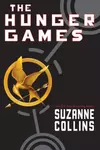

@jerald
Jerald
Jerald's Books by Status
500 Books
See allJerald's Pinned Prompts
Featured Prompt
4,644 booksWhat are your favorite books of all time?
When you think back on every book you've ever read, what are some of your favorites? These can be from any time of your life – books that resonated with you as a kid, ones that shaped your personal...
Featured Prompt
105 booksWhat books have changed you as a person?
For better or for worse, what books have you read that influenced your character and/or how you view everyone else's character (or even the world and universe surrounding us)?
Featured Prompt
48 booksWhat are your favorite books about climate change and the environment?
April is Earth Month! 🌎 What fiction or nonfiction books would you recommend to readers who want to learn more about environmental issues, climate crisis, and protecting our planet?
Jerald's Most Popular Reviews
Contains spoilers
A imaginative, inspiring, and insightful second-halfer that feels like a spiritual restaging of Ecotopia. Along with Mosscap, we are treated to further glimpses of how a prosperous post-capitalist human society is running, from family and romantic relations, to work and orientations to the exchange of services.
Two moments I'm fond of are the fishing scene ("together, they held vigil as something that had never existed before and never would again ceased its struggling and came to an end"), and when Mosscap calls out Dex's use of metaphors that malign non-humans, as a callback to how it is not just an object in the first book ("All parasites have value, Sibling Dex. Not to their hosts, perhaps, but you could say the same about a predator and a prey animal. They all give back—not to the individual but to the ecosystem at large").
I only wish we got to see Becky's worldbuilding treatment of the city and university, but the pair's detour at the end felt like a fitting and heartwarming close (or continuation) to their journey.
A masterclass in ecotopian / hopepunk / utopian climate fiction writing.
Contains spoilers
Babel rings with too much truth to be described as historical fiction. The magic system that undergirds the novel, and both the fictional and historical British empire, is not only translation, but Kuang's own translation pair of translation/colonialism. She directs this incisively to unveil and dispell its slow violence:
"These towering edifices were built with coin from the sale of slaves, and the silver that kept them running came blood-stained from the mines of Potosí. It was smelted in choking forges where native labourers were paid a pittance, before making its way on ships across the Atlantic to where it was shaped by translators ripped from their countries, stolen to this faraway land and never truly allowed to go home."
"What became clear was how deeply Oxford relied on silver, how without the constant labour of its translation corps, of the talent it attracted from abroad, it immediately fell apart. It revealed more than the power of translation. It revealed the sheer dependence of the British, who, astonishingly, could not manage to do basic things like bake bread or get safely from one place to another without words stolen from other countries."
"The papers had made them out to be isolated outbursts of discontent. But it was clear now that they were all connected, all caught in the same web of coercion and exploitation. What was happening to the Lancashire spinners had happened to Indian weavers first. Sweating, exhausted textile workers in silver-gilded British factories spun cotton picked by slaves in America. Everywhere the silver industrial revolution had wrought poverty, inequality, and suffering, while the only ones who benefited were those in power at the heart of the Empire."
At the same time, Babel is also Kuang's love letter to the beauty of language and translation, in the small glimpses we get of it untethered from the colonial project. We are briefly introduced to the Hermes Society's projects at the Old Library. There is a beauty in the etymological study and evocation that effuses the Babblers' training and work. Kuang leaves us with a final figure of translation as "[l]istening to the other and trying to see past your own biases to glimpse what they’re trying to say. Showing yourself to the world, and hoping someone else understands."
In fact, language and translation, directed outside and towards its masters and coupled with the subtitular necessary violence, is also what makes possible the the destruction of Babel, showing us how like colonialism, translation works towards its own dissolution/irrelevance (to borrow my friend Quinn's eloquent understanding of the political project of queerness).
"Translation means doing violence upon the original, means warping and distorting it for foreign, unintended eyes. So then where does that leave us? How can we conclude, except by acknowledging that an act of translation is then necessarily always an act of betrayal?"
Thanks Madi for the persistent and and on point recommendation!



























